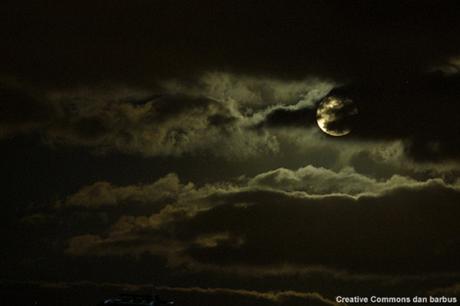
What a tangled up snarl of a November it has been. On one hand, it is November! The trees shot forth their last bright flames before settling into winter bones. And I love Thanksgiving above all other holidays. Of course, there’s the food—daydreaming over recipes, returning to old favorites, jostling for the oven. But there is also the gathering together with no purpose other than conviviality and gratitude. A call to gratitude is about as close as we get to holiness in the secular waters where I and most of my friends swim.
And yet, there is a long shadow cast over this November. Since the brutal Daesh (let’s call them that, shall we?) rampage of November 12 and 13, the media has blanketed us with terrorism reporting. Every day is filled with news of another attack, another lockdown, another shootout. This alongside the news that an Oregon college student was assaulted in a racially motivated attack over the weekend, Black Lives Matter activists were shot in Minneapolis by white supremacists, and Western Washington University is closed after students of color were threatened online. Oh and yes, our last hope for any kind of half-feasible climate agreement that might at least slow the earth’s incineration is dependent on the erstwhile leaders of the world pulling up their socks and getting down to business in Paris next week, a city that is more than a little distracted.
I’ve heard it argued that we have no business counting our bougie blessings while the world is consumed with injustice and oppression and violence. And under the circumstances, that’s a pretty compelling argument. The call to outrage and fear and retribution seems a lot more appropriate under the circumstances, and it offers our amped up limbic systems something to do. And plus, I’m kind of in love with my outrage. It makes me feel less powerless, and it obliterates all those pain-soaked emotions like confusion and heartbreak and grief. By staying high on outrage, I can keep moving at 70 miles-an-hour and not stop to feel what’s really happening.
I know that gratitude for my clannish family and home-grown squash and working hot-water heater and relative health and silly joyous pets and meaningful work and whip-smart colleagues and dry socks and a decent haircut and ridiculously thorough education and big street trees and beautifully maintained parks and clean water and fierce sparkly friends and dry firewood and books of heart-stopping poems (some written by those sparkly friends) and a watchful mountain and a curvy river and a brilliant husband and stunning daughters contrasts my abundance from the want and suffering of many of the world’s citizens.
Sometimes it’s just easier to be outraged than really feel how unjust it is that I have so much when others have so little. Yes, it’s definitely better to be infuriated than guilty and confused.
But it is a dangerous business to plunge fully into the pool of outrage. It is blinding and deafening and disconnecting. It feeds on self-righteousness and certainty and locating and demonizing the other. It whips up hysteria and loves a good mob.
Gratitude, on the other hand, is a call to close looking and affection. Yes, it can tip into sentimentality and self-congratulation (which don’t look that bad in contrast with mass brutality), but gratitude also ties us to the world, even in all its brokenness. Since the Paris attacks, I have seen several people return to Adam Zagajewski’s poem “Try to Praise the Mutilated World,” which was published in The New Yorker right after 9/11. Here it is:
Try to praise the mutilated world.
Remember June’s long days,
and wild strawberries, drops of rosé wine.
The nettles that methodically overgrow
the abandoned homesteads of exiles.
You must praise the mutilated world.
You watched the stylish yachts and ships;
one of them had a long trip ahead of it,
while salty oblivion awaited others.
You’ve seen the refugees going nowhere,
you’ve heard the executioners sing joyfully.
You should praise the mutilated world.
Remember the moments when we were together
in a white room and the curtain fluttered.
Return in thought to the concert where music flared.
You gathered acorns in the park in autumn
and leaves eddied over the earth’s scars.
Praise the mutilated world
and the gray feather a thrush lost,
and the gentle light that strays and vanishes
and returns.
(translated by Clare Cavanaugh)
Yes, there it is. Wine and strawberries and the thrush’s gray feather in the face of suffering and brutality and capriciousness. And it is not just comfort that Zagajewski offers us, it is an imperative. We must praise the mutilated world because the future depends on the actions we take out of gratitude and connection—and, yes, love—in addition to the actions we take out of outrage and holy indignation. I am reminded of a stunning insight by the painter and mythologist Martin Shaw: “I have not a clue whether we humans will live for another 100 or 10,000 years. We can’t be sure. What matters to me is the fact we have fallen out of a very ancient love affair – a kind of dream tangle, with the earth itself. If, through our own mess, that relationship is about to end, then we need to scatter as much beauty around us as we possibly can, to send a voice, to attempt some kind of repair. I think of it as a kind of courting – a very old idea.”
So this Thanksgiving, I am challenging myself to keep the fire of righteous indignation burning while I kneel at the hearth of gratitude. Maybe I’ll see you there. I’ll slice the pie.
